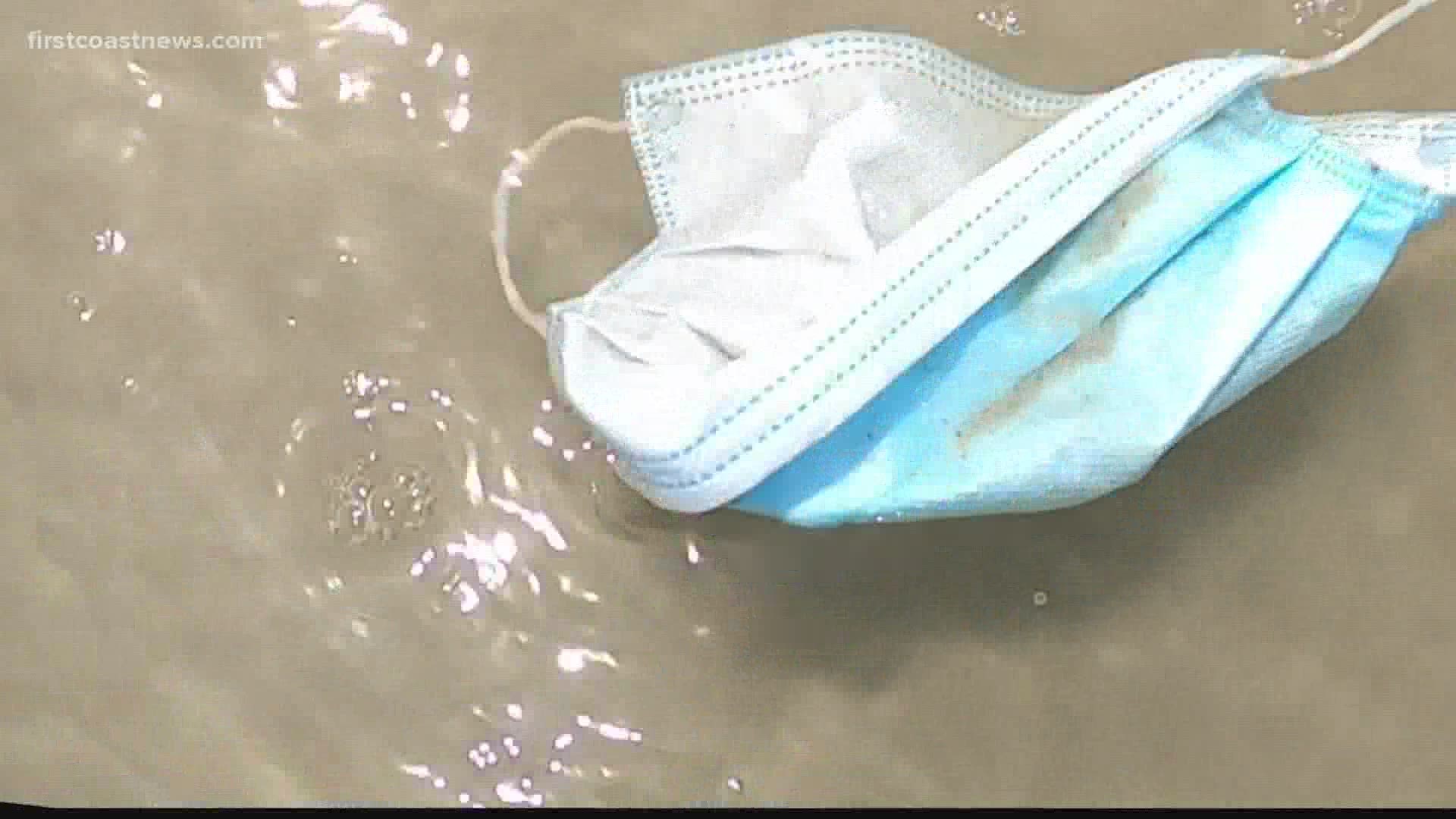ST. AUGUSTINE, Fla. — While face masks and gloves help us contain the spread of COVID-19, those items are quickly becoming the newest form of litter.
Some scientists are concerned this newest version of trash is making its way to the oceans and rivers. Dr. Ed McGinley is a marine biologist and professor at Flagler College.
He told First Coast News, "I am definitely concerned about it."
Dr. Maia McGuire is a marine expert as well. She is an agent with the Florida Sea Grant. She said more research blogs are starting to write about the occurance of PPE on beaches and roadways.
"Anything that ends up on the ground, especially in our coastal counties in northeast Florida, has a very high likelihood of ending up in a waterway," McGuire said. "The wind, the rain, can blow or wash them into our storm water system. Some people think the storm water then goes to a water treatment facility and those items are removed. That is not the case. The storm water system is essentially a series of pipes that are inter-connected that flow from the land into the natural waterways."
Those disposable masks and gloves are often made of plastic and are not biodegradable.
"Even the things that appear to be fabric are made from a synthetic fabric like polyester or polypropylene," McGuire said.
Once in the water, animals can get entangled in those items or mistake the items as food and eat them.
"These things are going to be next to impossible to digest," McGinley said.
If marine animals digest the tiniest of particles, McGuire said humans would not consume the materials from fish, because plastic particles are not usually found in fish muscles.
However, McGinley said humans may likely consume remnants of the PPE by eating "shellfish, oysters, clams. Those that we do often eat the entire animal."
McGinley's research means he spends a lot of time on the water. Tuesday, he said he hasn’t seen PPE in the waters of northeast Florida yet.
However, Europe is reporting gloves and masks are already in its waterways. Because Europe is a few steps ahead in its battle against COVID-19, some scientists are encouraging the western hemisphere to take note.
McGuire suggests an easy solution: "Properly dispose of your PPE!"
She also recommends disposing PPE in indoor trash receptacles.
"Because even if people throw things away in an outdoor trash can, you've got wildlife that tend to rummage through trash cans," she said. "You've got the wind that can but (the items) back into the environment. So indoors is the best place to dispose of this equipment."
McGinley foresees some people will downplay the issue, claiming the litter from PPE is minimal.
But he said the solution is an easy one.
"If it’s something we can prevent and be mindful of, it’s one less thing we have to worry about getting into the water," he said.

